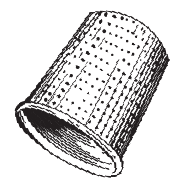Dear Readers,
Fall is my favorite season. The heat and humidity of summer have given way to cooler, crisper nights. The light is milder, the last warm evenings are tinged in gold. The last fruits have ripened, a few late asters still bloom, the trees let go of their leaves. The milkweed seedpods have burst open and released the seeds on their fluffy parachutes. The title of Kathleen McIntosh’s poem in this issue, “What I learned tending the garden”, resonates with me. The garden has been a patient and wise teacher for me, and it holds many more lessons.
The poems in this issue invite us to walk in the cool of the garden and on moss, listen to snowfall, observe the metamorphosis of a monarch from caterpillar to butterfly. They ponder a bug carcass caught on a window screen, tell of the encounter with a doe in winter.
Several of the poems recall memories: of the treasures a mother brought home from her work in a fabric store; of a walk in the cemetery with grandmother; of a horseshow the morning after the mother had been rushed to the hospital; of a haircut in the kitchen. Autumn invites remembrance and lets us ponder mortality. The yellowing of the leaves foreshadows their falling, breakdown, and transformation into earth, a transformation no less spectacular and beautiful than that from caterpillar to butterfly. Many cultures devote special days to the memory of the ancestors; it is no coincidence that those often happen in the fall.
We write against the forgetting. We preserve memories in poems and stories, try to hold on to what is fleeting. We struggle to make our peace with impermanence. The lessons from the garden help. We witness the miracle of the compost and the mystery of the seed. Endings give rise to beginnings. The wind carries the milkweed seeds into an uncertain future. Gardening is always an exercise in hope.
May you, dear readers, journey through the dark season with hope, and may art and poetry help you with that. Thank you for being here.
Best,
Agnes Vojta


